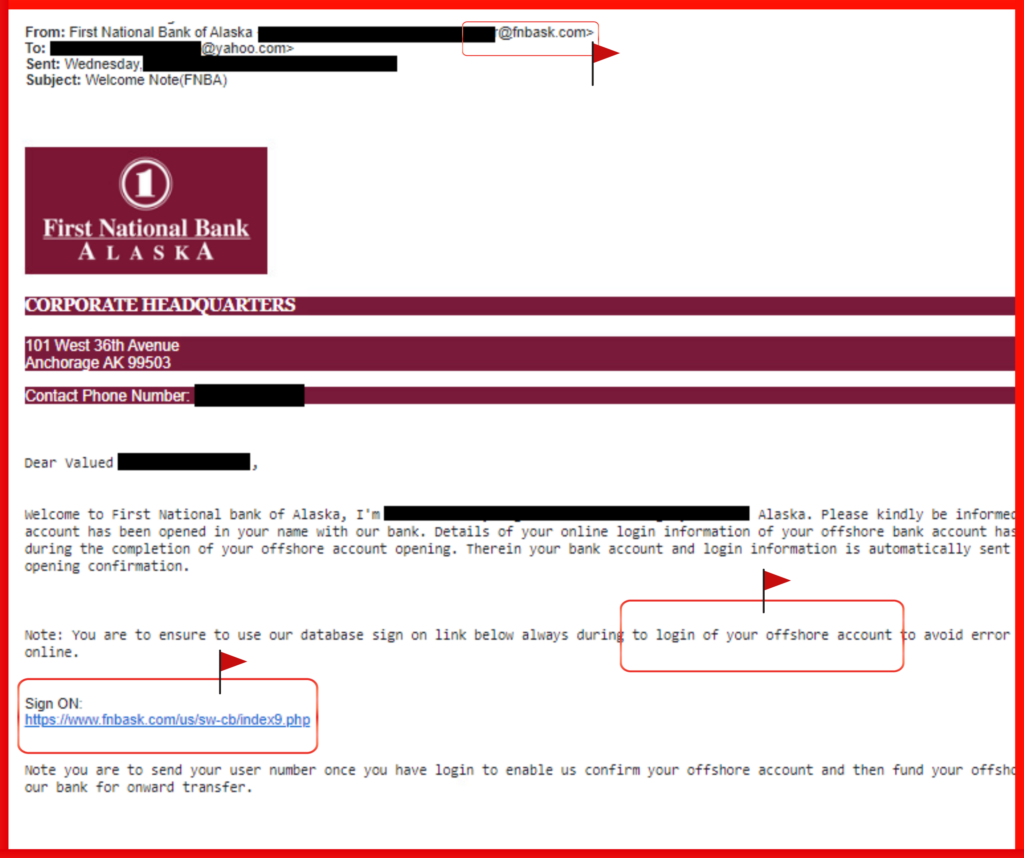Scammers are impersonating First National employees through spoofing and phishing emails to convince bank customers to transfer their money to a newly opened offshore account. First National Bank Alaska does not hold offshore accounts. If someone tells you to provide your account information and move your money for any reason, it’s probably a fraud attempt.
How to protect yourself:
- Be careful with what information you share online or on social media. By openly sharing things like pet names, schools you attended, links to family members, and your birthday, you can give a scammer all the information they need to guess your password or answer your security questions.
- Don’t click on anything in an unsolicited email or text message asking you to update or verify account information. Look up the company’s phone number on your own (don’t use the one a potential scammer is providing), and call the company to ask if the request is legitimate.
- Carefully examine the email address, URL, and spelling used in any correspondence. Scammers use slight differences to trick your eye and gain your trust.
- Be careful what you download. Never open an email attachment from someone you don’t know, and be wary of email attachments forwarded to you.
- Set up two-factor (or multi-factor) authentication on any account that allows it, and never disable it.
- Verify payment and purchase requests in person if possible or by calling the person to make sure it is legitimate. You should verify any change in account number or payment procedures with the person making the request.
- Be especially wary if the requestor is pressing you to act quickly.
If you get a call, email, or text message from someone you think is trying to scam you, contact your financial institution immediately. Next, contact your local FBI field office and file a complaint with the FBI’s Internet Crime Complaint Center.
